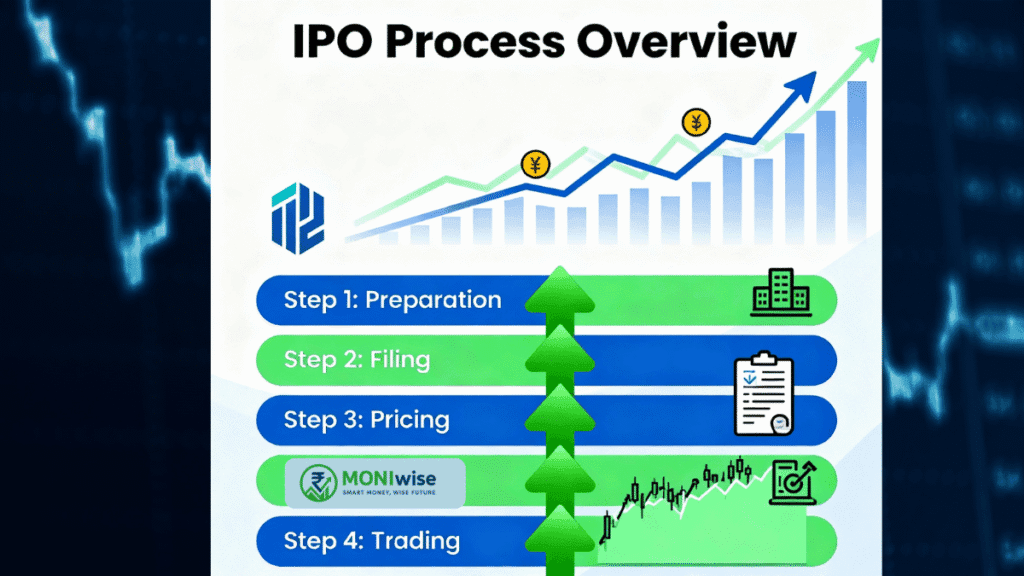Starting your investment journey with just ₹1000 in share market might seem modest, but it's actually a smart way to begin building wealth. Many successful investors started with small amounts and gradually built their portfolios through disciplined investing and smart strategies. Whether you're a college student, young professional, or anyone looking to grow your savings, learning how to invest 1000 rupees in share market can be your first step toward financial freedom.
The Indian stock market offers numerous opportunities for small investors, with no minimum investment requirements and various investment options suitable for different risk profiles. This comprehensive guide will walk you through everything you need to know about investing your first ₹1000 in the share market, from opening accounts to choosing the right investment strategies.
Understanding the Basics: Getting Started with ₹1000
Is ₹1000 Enough to Start Investing?
Absolutely! The Indian stock market has no fixed minimum investment limit, making it accessible to investors of all financial backgrounds. You can purchase individual stocks, invest in mutual funds through Systematic Investment Plans (SIPs), or even buy fractional shares with as little as ₹100. The key is not the amount but starting early and staying consistent with your investments.>
What You Need Before Investing
Before you invest your first ₹1000, ensure you have:
- A stable source of income
- Emergency fund covering 3-6 months of expenses
- Clear investment goals (short-term or long-term)
- Basic understanding of market risks
- Patience for long-term wealth building
Step-by-Step Guide: How to Invest ₹1000 in Share Market
Step 1: Open a Demat and Trading Account
To invest in the stock market, you'll need two accounts:
Demat Account: Stores your shares electronically
- Opening charges: ₹0-₹500 (many brokers offer free account opening)
- Annual Maintenance Charges: ₹250-₹600
- Basic Services Demat Account (BSDA): Free AMC if holdings are less than ₹4 lakh
Trading Account: Enables buying and selling of shares
- Usually opened together with Demat account
- Brokerage charges vary by broker
Documents Required:
- PAN Card (mandatory)
- Aadhaar Card
- Bank account proof (cancelled cheque)
- Recent photograph
- Signature verification
Step 2: Complete KYC Process
The Know Your Customer (KYC) process involves:
- Document verification
- In-Person Verification (IPV) via video call
- Bank account linking
- Risk profile assessment
Step 3: Choose Your Investment Strategy
With ₹1000, you have several strategic options:
Option 1: Systematic Investment Plan (SIP)
Minimum SIP Amount: ₹100-₹500 per month
Benefits:
- Rupee Cost Averaging: Buy more units when markets are low, fewer when high
- Disciplined investing approach
- No need to time the market
- Power of compounding over time
Example SIP Calculation:
If you invest ₹1000 monthly for 12 months at 12% annual return:
- Total Investment: ₹12,000
- Expected Maturity Value: ₹12,766
Option 2: Direct Stock Investment
Best Stocks Under ₹1000:
- HDFC Bank Ltd: ₹968.85 (PE: 21.04)
- State Bank of India: ₹863.10 (PE: 10.02)
- ITC Ltd: ₹409.80 (PE: 14.72)
- NTPC Ltd: ₹339.05 (PE: 13.26)
- Oil and Natural Gas Corporation: ₹236.45 (PE: 8.27)
Option 3: Dividend-Paying Stocks
High Dividend Yield Stocks Under ₹1000:
- Embassy Office Parks REIT: 7.81% dividend yield
- Indian Oil Corporation: 6.6% dividend yield
- Vedanta Ltd: 6.47% dividend yield
- Bharat Petroleum Corporation: 5.94% dividend yield
- Hindustan Petroleum: 5.4% dividend yield
Step 4: Diversification Strategies for Small Amounts
For ₹1000 Investment, Consider:
- 80-20 Strategy: 80% in large-cap stocks/ETFs, 20% in small-cap stocks
- Mutual Fund Route: Invest entire amount in diversified equity mutual fund
- Index Fund Investment: Track market indices like Nifty 50 or Sensex
- Sector-Specific ETFs: Focus on specific sectors like banking, IT, or pharmaceuticals
Investment Options for ₹1000: Detailed Analysis
Equity Mutual Funds via SIP
Advantages:
- Professional fund management
- Instant diversification
- Lower risk compared to individual stocks
- Flexibility to start/stop anytime
Recommended Fund Categories:
- Large Cap Funds: Stable, lower risk
- Multi-Cap Funds: Balanced exposure
- Index Funds: Low expense ratio, market tracking
Exchange Traded Funds (ETFs)
ETFs offer diversification at low cost:
- Nifty ETF: Tracks top 50 companies
- Bank Nifty ETF: Focus on banking sector
- Gold ETF: Hedge against inflation
- Minimum investment: Price of 1 unit (usually ₹100-₹500)
Direct Stock Investment Strategy
Stock Selection Criteria for Beginners:
- Strong Fundamentals: Low debt, consistent profits
- Good PE Ratio: Below industry average
- Regular Dividend Payments: Steady income source
- High Trading Volume: Easy buying/selling
- Established Business: Recognized brands
Interactive Investment Calculator
SIP Growth Calculator for ₹1000 Monthly:
| Investment Period | Monthly SIP | Expected Return (12%) | Maturity Value | Total Investment |
|---|---|---|---|---|
| 1 Year | ₹1,000 | 12% | ₹12,766 | ₹12,000 |
| 3 Years | ₹1,000 | 12% | ₹42,297 | ₹36,000 |
| 5 Years | ₹1,000 | 12% | ₹81,496 | ₹60,000 |
| 10 Years | ₹1,000 | 12% | ₹2,32,339 | ₹1,20,000 |
Key Features to Include in Your Calculator:
- Monthly investment amount slider
- Investment duration selector
- Expected return rate adjustment
- Inflation adjustment option
- Goal-based planning (car, house, retirement)
Risk Management for Small Investors
Understanding Market Risks
Types of Risks:
- Market Risk: Overall market decline
- Company-Specific Risk: Individual company problems
- Inflation Risk: Purchasing power erosion
- Liquidity Risk: Difficulty in selling investments
Risk Mitigation Strategies
For ₹1000 Investment:
- Never invest borrowed money
- Start with blue-chip stocks or mutual funds
- Avoid penny stocks initially
- Don't put all money in one stock
- Set realistic expectations (10-12% annual returns)
Stop-Loss Strategy
For direct stock investments:
- Set stop-loss at 5-7% below purchase price
- Review and adjust quarterly
- Don't let emotions override discipline
Tax Implications for Beginner Investors
Capital Gains Tax Structure
Short-Term Capital Gains (STCG):
- Holding period: Less than 12 months
- Tax rate: 20% (increased from 15% in July 2024)
- Applied on profits from stock sales
Long-Term Capital Gains (LTCG):
- Holding period: More than 12 months
- Tax-free up to: ₹1.25 lakh per year (increased from ₹1 lakh)
- Tax rate above exemption: 12.5%
Tax-Saving Tips
- Hold investments for more than 1 year to get LTCG benefits
- Harvest tax losses by selling loss-making investments
- Plan withdrawals to stay within tax-free limits
- Maintain proper investment records for tax filing
Common Mistakes to Avoid
Behavioral Mistakes
- Trying to time the market – Focus on time in market, not timing the market
- Emotional investing – Don't panic sell during market downturns
- Following hot tips – Do your own research
- Overconfidence – Start small and learn gradually
- Lack of patience – Wealth building takes time
Technical Mistakes
- Inadequate diversification – Don't put all money in one stock
- Ignoring expense ratios – High fees eat into returns
- Frequent trading – Increases transaction costs
- Not reviewing portfolio – Regular monitoring is essential
Advanced Strategies for Growing Your ₹1000
Rupee Cost Averaging Benefits
How It Works:
- Invest fixed amount regularly regardless of market conditions
- Buy more units when prices are low
- Buy fewer units when prices are high
- Averages out the cost over time
Example:
Monthly SIP of ₹1000 in a fund with fluctuating NAV:
- Month 1: NAV ₹100 → 10 units
- Month 2: NAV ₹80 → 12.5 units
- Month 3: NAV ₹120 → 8.33 units
- Average cost: ₹97.6 per unit instead of ₹100
Step-Up SIP Strategy
Start with ₹1000 and increase by 10-15% annually:
- Year 1: ₹1000/month
- Year 2: ₹1100/month
- Year 3: ₹1200/month
- This helps counter inflation and accelerates wealth building
Dividend Reinvestment
Instead of taking dividends as cash:
- Reinvest dividends to buy more shares
- Benefit from compounding effect
- Choose dividend reinvestment plans (DRIPs)
Platform and Broker Selection
Why This is Best Trading Platform Click here now
Top Discount Brokers for Beginners
Popular Options:
- Zerodha: ₹0 account opening, ₹20 per order
- Upstox: Free account opening, competitive rates
- Angel One: ₹0 brokerage for first 30 days
- Groww: User-friendly interface, free mutual fund investments
- 5paisa: Low brokerage rates
Selection Criteria:
- Brokerage charges
- Account maintenance fees
- Research and analysis tools
- Mobile app quality
- Customer support
- Educational resources
Mutual Fund Platforms
Direct Investment Platforms:
- AMC websites (no distributor commission)
- Coin by Zerodha: Direct mutual fund investment
- Paytm Money: Zero commission platform
- Kuvera: Free portfolio management
- ET Money: Goal-based investing
Step-by-Step Action Plan
Week 1: Preparation
- Research and select broker
- Gather required documents
- Set investment goals
- Educate yourself on basics
Week 2: Account Setup
- Open Demat and trading account
- Complete KYC process
- Link bank account
- Download mobile apps
Week 3: Investment Strategy
- Choose between SIP vs lumpsum
- Select 2-3 investment options
- Set up automatic investment instructions
- Create investment calendar
Week 4: Execute and Monitor
- Make your first investment
- Set up portfolio tracking
- Schedule monthly reviews
- Plan for scaling up investments
Long-Term Wealth Building with ₹1000
The Power of Compounding
₹1000 Monthly SIP Growth Projection:
- 5 Years: ₹81,496 (12% return)
- 10 Years: ₹2,32,339
- 15 Years: ₹5,00,467
- 20 Years: ₹9,89,255
Goal-Based Investing Examples
Short-term Goals (1-3 years):
- Emergency fund building
- Gadget purchase
- Vacation planning
- Recommended: Liquid funds, short-term debt funds
Medium-term Goals (3-7 years):
- Car purchase
- Home down payment
- Wedding expenses
- Recommended: Hybrid funds, balanced funds
Long-term Goals (7+ years):
- Retirement planning
- Children's education
- Wealth accumulation
- Recommended: Equity mutual funds, direct stocks
Regulatory Framework and Investor Protection
SEBI Guidelines for Investor Protection
Key Regulations:
- Mandatory KYC for all investors
- Transparent pricing and fee disclosure
- Investor grievance redressal mechanism
- Regular audit and compliance checks
- Investor education initiatives
Investor Rights
What You're Entitled To:
- Transparent fee structure
- Regular portfolio statements
- Prompt settlement of transactions
- Access to company information
- Grievance redressal mechanisms
Red Flags to Avoid
Warning Signs:
- Guaranteed returns promises
- Pressure to invest immediately
- Unregistered investment advisors
- Lack of proper documentation
- Too-good-to-be-true schemes
FAQs
1. Can I really start investing with just ₹1000 in the Indian share market?
Yes, absolutely! The Indian stock market has no minimum investment requirement. You can start with ₹1000 by investing in individual stocks (if their price is under ₹1000), mutual funds through SIP (minimum ₹100-₹500), or ETFs. Many successful investors started with small amounts and built wealth through consistent investing.
2. What is the best way to invest ₹1000 for a complete beginner?
For beginners, starting with a diversified equity mutual fund SIP is ideal. You can invest ₹1000 monthly in a large-cap or multi-cap fund through SIP, which provides professional management, diversification, and the benefit of rupee cost averaging. This reduces risk while offering good long-term growth potential.
3. Which stocks under ₹1000 are good for beginners to buy?
Some reliable stocks under ₹1000 suitable for beginners include HDFC Bank (₹968), State Bank of India (₹863), ITC Ltd (₹409), NTPC Ltd (₹339), and ONGC (₹236). These are established companies with strong fundamentals, regular dividends, and good liquidity. However, always research before investing.
4. How much can ₹1000 monthly SIP grow over time?
With a ₹1000 monthly SIP at 12% annual return: in 5 years you'd have ₹81,496, in 10 years ₹2,32,339, and in 20 years approximately ₹9,89,255. The power of compounding significantly multiplies your wealth over longer periods, making early and consistent investing crucial.
5. What are the charges for opening a Demat account for small investors?
Most brokers now offer free Demat account opening. Annual Maintenance Charges (AMC) range from ₹250-₹600. However, if you have a Basic Services Demat Account (BSDA) with holdings under ₹4 lakh, the AMC is waived. Transaction charges are minimal, usually ₹10-₹20 per trade.
6. Is it better to invest ₹1000 monthly through SIP or as a lump sum?
For most beginners, monthly SIP of ₹1000 is better than lump sum investment. SIP provides rupee cost averaging, reduces timing risk, creates investment discipline, and makes investing affordable. It allows you to buy more units when markets are down and fewer when markets are up, averaging your cost over time.
7. What tax will I pay on gains from ₹1000 investment in shares?
Short-term capital gains (shares held less than 12 months) are taxed at 20%. Long-term capital gains (shares held more than 12 months) are tax-free up to ₹1.25 lakh annually, and 12.5% above that limit. For small investors starting with ₹1000, tax liability will be minimal initially.
Conclusion
Investing ₹1000 in the share market is not just possible but an excellent way to begin your wealth-building journey. The key is to start early, stay consistent, and choose the right investment strategy based on your risk tolerance and financial goals. Whether you choose SIPs in mutual funds, direct stock investment, or ETFs, the important thing is to begin and maintain discipline.
Remember that successful investing is a marathon, not a sprint. Your ₹1000 today, when invested wisely and consistently, can grow into substantial wealth over the years through the power of compounding. Start with proper planning, educate yourself continuously, and don't let market volatility deter you from your long-term goals.
Take action today – open your Demat account, choose your investment strategy, and make that first investment. Your future self will thank you for starting this journey with whatever amount you have, even if it's just ₹1000.
Ready to start your investment journey? Open your Demat account today and take the first step toward financial freedom!
Investment Disclaimer
Share Market investments are subject to market risks. Please read all scheme-related documents carefully before investing. Past performance is not an indicator of future returns. The securities quoted are for illustration only and are not recommendatory. This article is for educational purposes only and should not be considered as financial advice. Please consult with a qualified financial advisor before making investment decisions. The author and platform are not responsible for any financial losses incurred based on the information provided.



